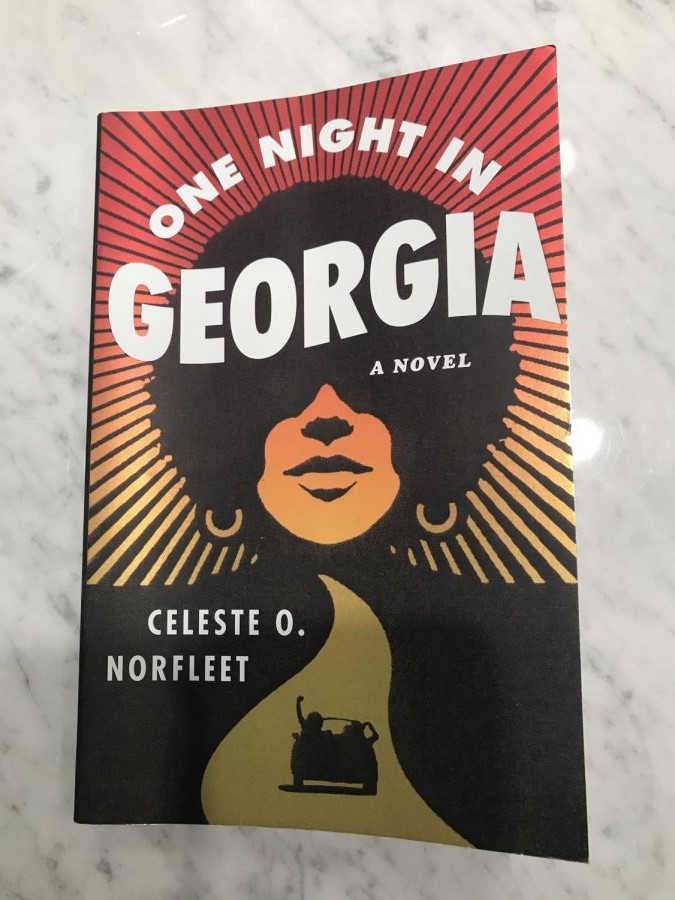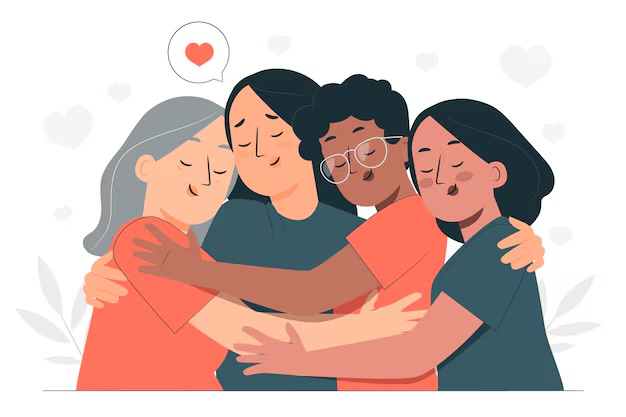“One Night in Georgia” sheds light on contemporary American issues
May 10, 2021
“One Night in Georgia” by Celeste O. Norfleet is a captivating tale brimming with political messages. It contains harmful reminders of America’s past along with striking parallels to current events. This powerful story will make each reader reflect and deliberate, something all too many often neglect. The novel describes a group of three women and their road trip down to Spelman College a week before the semester begins.
Zelda Livingston, one of the three women, is the daughter of a renowned civil rights attorney. She is wary of accompanying her two friends on the drive from her home, New York City, down to Georgia, as she knows the dangers facing African Americans in the South. Her friends, Veronica Cook and Daphne Brooks, convince Zelda to join them, and they pick up a family friend, Daniel, in Washington D.C., who is sent to escort them.
A little over the first half of the novel details the several threatening encounters the group faces with bigoted beach goers, racist sheriffs, and unwelcoming restaurant patrons. They finally make it to Georgia where they attend a friend’s birthday party, but the night ends in tragedy: One of the girls fatally shoots a white man. A fast-paced race to the end of the book leaves the audience on edge and rooting for the characters they have quickly come to love and adore. Norfleet does an excellent job of crafting characters in “One Night in Georgia” that can be easily admired by a variety of readers.
Norfleet eloquently describes the picturesque scenes of a southern summer, but the most striking aspect of the setting is its juxtaposition with the polarized time period the story inhabits. The summer of 1968 was one of heightened racial tension with events like the tragic death of Dr. Martin Luther King Jr., college student movements across the nation, and the end of the Vietnam War. Norfleet builds a narrative using delicate characters who oscillate between carefree adolescence and depleting adulthood. Their struggles are complicated by their racial identity, which Norfleet acknowledges and underlines, especially during the main characters’ interactions with white people. The intentions of Zelda, Veronica, Daphne, and Daniel are heart-warming; the contrast Norfleet created between the four is vital to the ending of the novel.
Zelda’s headstrong, unabashedly vocal and contentious personality contrasts Daniel’s soft-spoken but determined, empathetic manner and Daphne’s innocence, positivity, and naïveté. These three characters are mediated by a charming, calm, graceful Veronica. The remarkable picture Norfleet paints of these four people coming to terms with their racial identity in a severely racist world is one that truly resonates with readers. The recent revolution for social justice in America has brought to light many issues concerning systemic racism, but the parallels between the setting of “One Night in Georgia” and America today are astonishing and cannot be ignored. This story is a must-read for the younger generations of America who are venturing out to change the world, and it is one which will make each reader reflect and deliberate, something all too many often neglect.












